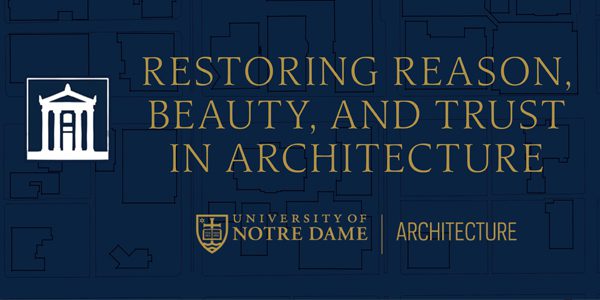The Church in Africa – The Catholic Church in Africa Today
Subscribe to the ThinkND podcast on Apple, Spotify, or Google.
Featured Speakers:
- Rev. Paul Kollman, C.S.C. ’84, ’90 M.Div., Associate Professor, Theology
The first event in The Global Church in Africa series featured Rev. Paul Kollman, C.S.C., a Holy Cross priest and Associate Professor of Theology at the University of Notre Dame. He was joined by Rev. David Lyimo Eliaona, C.S.C., a recent PhD graduate of the World Religion World Church area of Notre Dame’s Theology Department who teaches Theology with Holy Cross in Tanzania. This event focused on the state of the Church in Africa today, addressing topics such as the differences between Catholicism in the United States and Africa, challenges facing the worldwide Catholic Church today, and the distinct aspects of the Church in Africa. Subsequent events will trace the history of the Catholic Church in Africa and speculate on its future.
Fr. Eliaona began the event by posing a question about the similarities and differences between the Catholic Church in the United States and Africa. Fr. Kollman identified the newness of the faith in Africa as one of the main differences, with many Catholics there only in the first few generations of Catholic identity in their families. While many lay members of the Church in the United States have formal theological training, this is very rare in Africa. Fr. Eliaona expanded upon this point by highlighting the differences in homilies between Tanzania and the United States. While the content of homilies and the clearness with which they present topics of the faith are prioritized over their length in Africa, he had to learn how to condense his messages into much shorter time periods while in the United States. Fr. Eliaona also identified the large faith communities in the United States as something unfamiliar to him when he arrived due to the small, tight-knit faith communities in Africa.
The speakers then transitioned to discuss challenges faced by the Catholic Church worldwide. Fr. Kollman discussed the importance of maintaining and protecting the integrity of the Church, especially in the wake of scandals associated with it. He emphasized the need for Church institutions to act in a way that is consistent with the witness of the Church. Focusing more specifically on the Church in Africa, Fr. Eliaona talked about the challenge of strong catechesis in Africa today. As Africa develops rapidly, the attention and effort of many priests and religious attends to the establishment of religious institutions and facilities, taking time away from their formation of young people. To combat this problem, groups of lay Catholics have begun to step in and take over this catechesis. Fr. Eliaona also addressed the myth that African Christians struggle to bring together their religious beliefs and cultural heritage. Through his dissertation research, he discovered that many young people not only do not have a deep understanding of their faith, but they have an unclear understanding of African culture as well. Though he grew up with a solid understanding of both, younger generations are beginning to understand African culture in a much different light due to its rapid change in recent years.
Fr. Eliaona’s favorite part about the Church in Africa is its small Christian communities. He called these communities the “root” holding together the Church in many countries, with Catholics coming together to take responsibility for the accountability of each other’s faith practices. These groups provide a depth to Catholicism as an extension of African Catholics’ relationship to their parishes. Individuals within these groups are interdependent on each other and work together to continuously develop their faiths and the faiths of their families. To conclude the event, the speakers addressed questions from participants regarding the role of women in the Church in both Africa and the United States, the differences between the Catholic Church in Ghana and East Africa, and the organization of faith formation in Africa. Fr. Eliaona identified the roles of women within the Church as very similar between the United States and Africa, and explained the process of catechesis of children in Africa, as well as the continuous catechesis of all members of the faith. Participants were then offered the opportunity to discuss this event’s content in conversation circles with other participants.
- The African Church is still young, with many of its families being only in their third or fourth generation of Catholicism. (7:46)
- “In some ways Africa is still the early Church, insofar as African people have learned to appropriate the truths of Christianity in a way that’s comfortable to them.” (Rev. Paul Kollman, C.S.C., 8:24)
- Developing and maintaining the Catholic Church’s integrity is one of the main challenges of the Church in the United States and in Africa. We must develop structures of accountability in order to establish a strong reliability. (13:39)
- “The institutions that we manage, we want them to be beacons of integrity and when we fall down or fail to live up to that it hurts the Church’s witness.” (Rev. Paul Kollman, C.S.C., 16:40)
- One of the main challenges of the Church in Africa is the lack of strong catechesis. Though many groups are beginning to act on this shortcoming, establishing religious institutions and facilities commands the attention of many priests and religious, leaving little time for the formation of younger generations. (17:19)
- “Growing up in Africa myself knowing that I grew up in a culture that I understood and I knew my Christianity, and I knew the process of inculturation and how it worked. And then I got to a point where I saw that it is not working that way. It is almost like a whole new culture is cropping up and the younger generations are picking up on a culture that is not the one that I knew well.” (Rev. David Lyimo Eliaona, C.S.C., 20:52)
- One of the main characteristics of the Church in Africa is the small Christian communities formed by parishioners within each parish. These small groups hold each other accountable, share understandings of religion, and practice the faith together. (25:04)
- “These [small Christian communities] have been the root that holds together the Catholic Church, especially in Eastern and Central Africa. It’s a connection. It’s the ability to take responsibility for each other.” (Rev. David Lyimo Eliaona, C.S.C., 26:40)
- Many liturgies in Africa are based on the local culture and practiced in the local language. In areas with large multicultural populations, the Church develops surrounded by this diversity. (35:25)
- “Every time you say “catechesis” it touches the core of my heart because I know that’s the strongest part of the Church, it’s actually like the heartbeat. It’s that it actually makes for the future of the Church and when we miss it, we actually miss the next generation.” (Rev. David Lyimo Eliaona, C.S.C., 42:45)
Related Content
How Cities Speak To Us
Professor Emily Talen joins the School of Architecture to share her work at The Urbanism Lab and its focal point at the University of Chicago for the study of the built...
View EventThe Black National Anthem & Parent’s Signing Off On Children Reading Black Books
In this week’s episode, Isaiah and Tykiera talk about some tweets about Black people that took Twitter by storm. They also talk about The Black National Anthem, Lift Every Voice...
watch videoTrusted AI Needs Trusted Data
In the buzz around AI, let’s not ignore the role of data for developing AI we can trust, says one Notre Dame computational scientist. Two years ago, Notre Dame launched the...
Read Article


